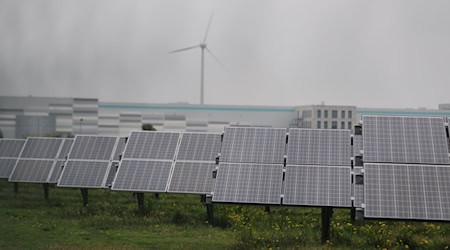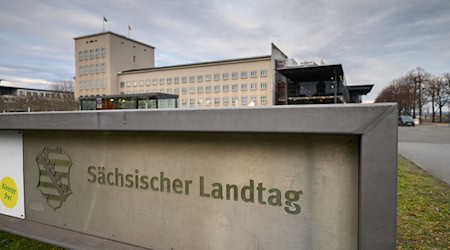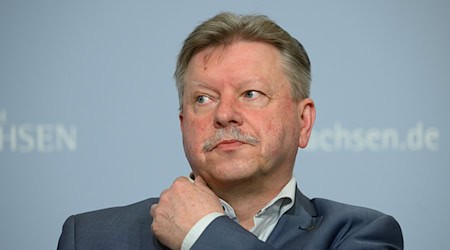Saxony must once again draw on its reserves for last year's budget. On Wednesday, the Free State's Budget and Finance Committee approved an additional withdrawal of 43 million euros from the so-called budget equalization reserve. Only with this final posting can the 2023 budget be balanced, it was said. According to Finance Minister Hartmut Vorjohann (CDU), this clearly shows the "seriousness of the situation" compared to previous years.
"We had a difficult budget implementation for 2023. So there can be no question of the much-publicized pessimism. The erosion of substance in the budget is a reality," explained the minister, pointing to falling tax revenues. "We had to cope with a significant shortfall of around 367 million euros here."
According to the ministry, the financial balance - the gap between revenue and expenditure - has deteriorated from a surplus of around 1.74 billion euros (2022) to a deficit of minus 1.14 billion euros in 2023. The deficit was financed through withdrawals from the reserves formed in previous years. This also includes the 43 million euros for balancing the budget.
The Ministry of Finance put investment expenditure at just under 3.64 billion euros in total. This is the highest figure since 2008. The investment ratio was 15.3 percent.
35.2 percent of the total expenditure went to Saxon municipalities - around 8.4 billion euros and therefore 1.1 billion euros more than in the previous year. At the same time, the municipalities collected around 4.88 billion euros in taxes, which corresponds to an increase of 663 million (15.7 percent).
"The 2023 annual financial statements already provide a foretaste of the 2024 budget implementation, which will also be very challenging," emphasized the minister. The tax estimate in May will show what concrete consequences the current economic weakness in Germany will have on the revenue side of the national budget. On the expenditure side, the consequences of the wage agreement, among other things, would lead to significant additional expenditure on personnel. At present, "management measures" cannot be ruled out. In plain language, Vorjohann means budget freezes.
The "Leipziger Volkszeitung" (LVZ) reported on Wednesday that eleven billion euros are missing for the next double budget 2025/2026. According to the report, Saxony could expect revenue of an estimated 46.6 billion euros, but the ministries would want to spend around 60 billion euros. The LVZ referred to an internal paper.
"In principle, it is not unusual for the departments' wishes to be more extensive than what is possible. Nevertheless, the extent of the additional applications can be described as unusual and this certainly has to do with the upcoming election in September," Vorjohann told the German Press Agency. The 2023 financial statements show that these wishes will not be feasible. The Free State of Saxony is already living "beyond its means". Even in the future, every euro can only be spent once.
Copyright 2024, dpa (www.dpa.de). All rights reserved










